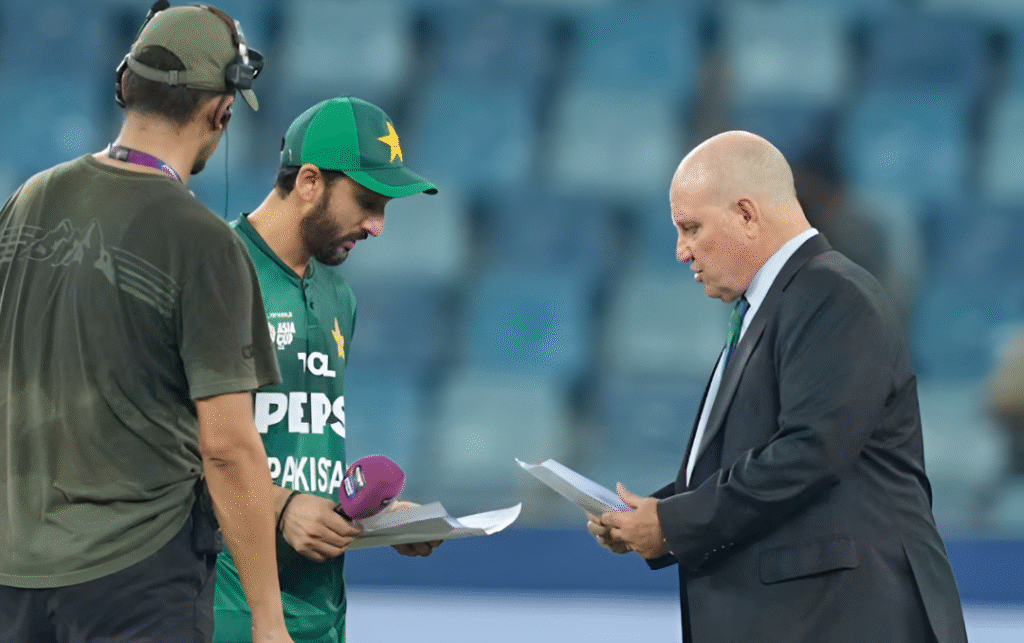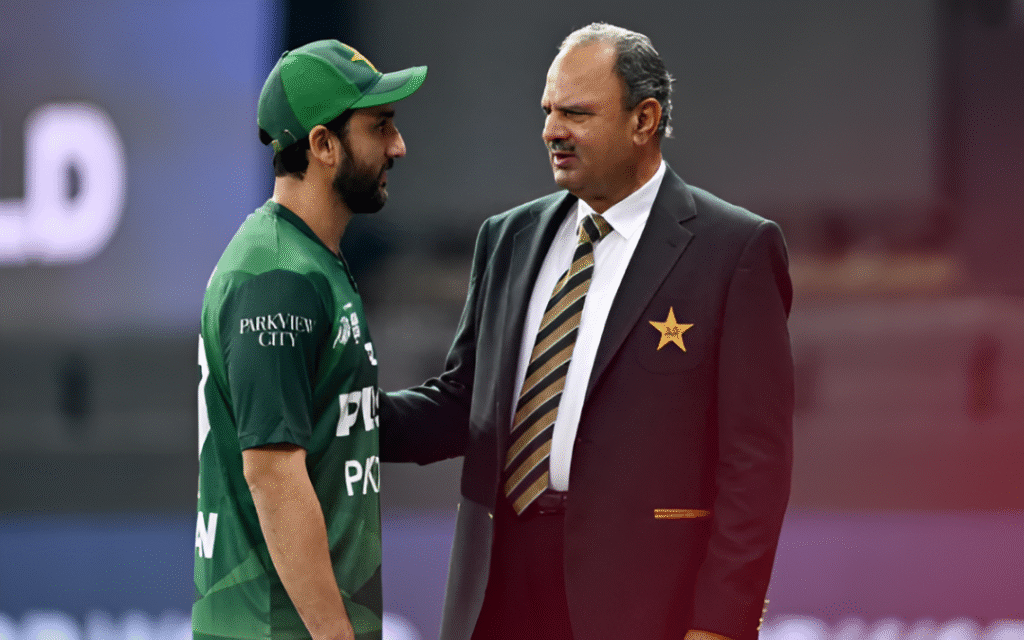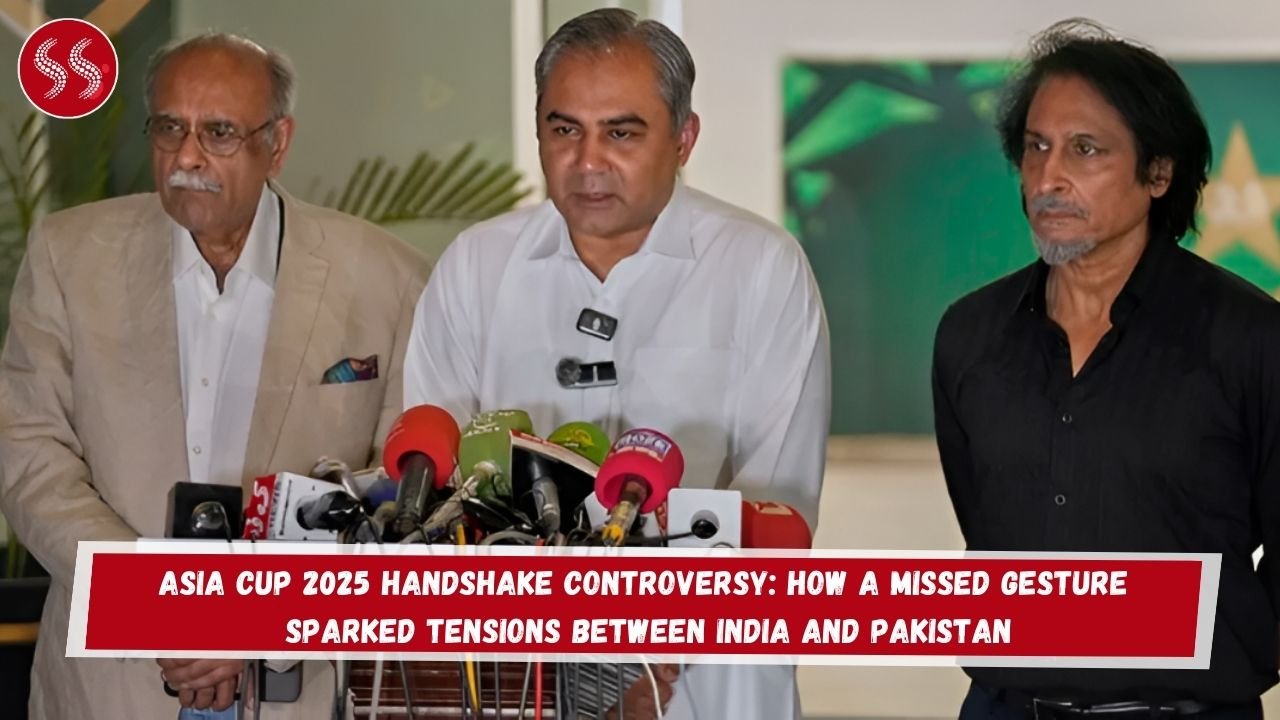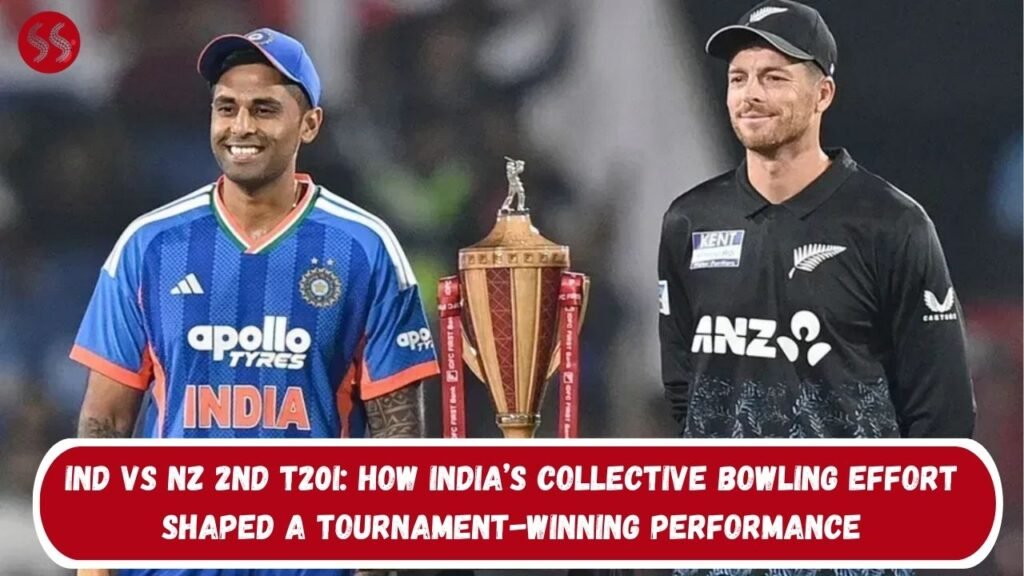The Asia Cup 2025 Handshake Controversy almost caused a major crisis after a disagreement over a missed handshake between India and Pakistan captains. What seemed like a small issue quickly turned into a storm involving the PCB, ICC, and match referee Andy Pycroft.
Pycroft was accused by the Pakistan Cricket Board (PCB) of misconduct, but the ICC stood firmly by him. The Asia Cup 2025 Handshake Controversy unfolded between September 14 and 17, leaving fans shocked that something as simple as a handshake could create such tension.
How the Controversy Started

The Asia Cup 2025 Handshake Controversy began just minutes before the India-Pakistan match on September 14 in Dubai. Reports said Pycroft was informed by the ACC venue manager, following BCCI instructions with Indian government approval, that there should be no handshake between India’s captain Suryakumar Yadav and Pakistan’s Salman Agha.
Pycroft, hearing this “four minutes before the toss,” felt he had no choice but to deliver the message to Agha. He believed it was better to warn him rather than let him go to shake hands and face public embarrassment if Suryakumar refused.
The PCB, however, viewed this differently. Officials argued that Pycroft should have informed the ICC about this unusual directive. After Pakistan’s defeat, the PCB lodged a formal complaint, accusing him of misconduct in the Asia Cup 2025 Handshake Controversy, and demanded his immediate removal from the tournament.
READ MORE:
- Top 10 Teams With Largest Margin of Victory by Balls Remaing in ODIs
- UAE vs Pakistan Asia Cup 2025 Highlights: Junaid Siddique and Simranjeet Singh Shine with Stunning Spells
The Clash Between PCB and ICC

The PCB’s complaint claimed that Pycroft “failed to ensure respect between the captains” and indulged in conduct violating the spirit of cricket. They argued that a neutral referee should have refused to deliver such a message, adding fuel to the Asia Cup 2025 Handshake Controversy.
But the ICC dismissed the claims. On September 15, it said it had “carefully investigated” the issue and found “no case to answer.” Pycroft was simply following instructions from the ACC venue manager and acted professionally under the last-minute directive.
The ICC explained that the real issue was the handshake itself, not the referee’s role, a point central to the Asia Cup 2025 Handshake Controversy. They also warned that removing referees at a team’s demand would set a “dangerous precedent.”
The PCB remained dissatisfied, calling the ICC investigation “one-sided.” They insisted Pycroft should never have acted as a “messenger” in this Asia Cup 2025 Handshake Controversy, arguing that respect between teams was compromised.
Heated Meetings and a Delayed Match
The Asia Cup 2025 Handshake Controversy escalated before Pakistan’s must-win game against the UAE on September 17. The PCB threatened to withdraw if Pycroft was not replaced, backed by the Pakistan government. The match was delayed for an hour amid intense discussions.
Eventually, a meeting was arranged. Pycroft met Agha, head coach Mike Hesson, and manager Naved Akram Cheema before the game. He explained he was only passing instructions and expressed regret over the “miscommunication and misunderstanding” in the Asia Cup 2025 Handshake Controversy.
The PCB later said Pycroft had apologised, though ICC sources called it more of an expression of regret. Despite the ICC repeatedly affirming Pycroft had done nothing wrong, the PCB continued to push for an inquiry into the Asia Cup 2025 Handshake Controversy, though chances of a formal investigation remain slim.
At the end of it all, the Asia Cup carried on, but the Asia Cup 2025 Handshake Controversy highlighted how political and cricketing tensions between India and Pakistan can spill over onto the field. A single missed handshake nearly derailed one of cricket’s biggest tournaments, leaving a senior match referee caught in the crossfire.
SEE MORE:


